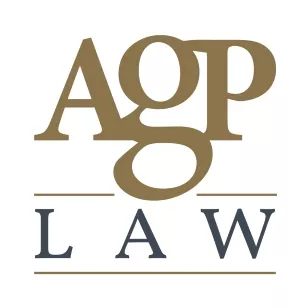- within Technology, Accounting and Audit and Strategy topic(s)
- with Senior Company Executives and HR
In Cyprus, several documents exist by which powers are vested to different persons (physical or legal) to carry out certain activities.
Despite the different number of documents available, two main types of Power of Attorneys now prevail (- we can now refer to these documents as POA or POAs/plural):
- The specific POA = 1 Transaction
- The general POA = more than 1 Transaction
Moreover, for a valid document – especially if one wants to make it entirely legitimate – a certifying officer or attorney is required, to verify that the person granting the powers and the person accepting the powers are adequately verified, and that they have willingly signed in front of this legitimate third party. In case this third party needs to be questioned as to the verification of the signature, they should be willing to do so and to be in a position to confirm the circumstances under which it took place.
In the Merriam Webster Dictionary, an attorney is defined as:
"One who is legally appointed to transact business on another's behalf".
Loss of capacity is accepted to exist when "a person lacks capacity if their mind is impaired or disturbed in some way, which means that they are unable to make a decision at that time". Examples of how a person's brain or mind may be impaired include: mental health conditions – such as schizophrenia or bipolar disorder, dementia, or severe learning disabilities.
If we accept that the Powers of Attorney are governed by the Law of Contracts Cap. 149 – more specifically from part ΧΙΙΙ – then there is a provision in the law regarding the scenario of our title i.e., if the powers have ceased since there is a loss of capacity.
It is inevitable for us to discuss voidable agreements which the other contractual party may try to render void from the beginning. The ways of proving an unsound mind or that the mind of the person that instructed them in the first place were not mentally fit to do so, is totally a question of facts and not law.
However, even if there's a factual question that must be responded to, we still we have the issue of an agreement that is entered into, and the time of entrance, the person (even though diagnosed with bipolarity or dementia) had realized what they were doing.
In article 143, the law states that you can hire anybody to be your legal attorney, as long as they have the 'legal capacity' to enter into an agreement. We know from Contract basics that we need three parts to create a legal binding agreement:
- Offer & Acceptance;
- Consideration; and
- The intention to create binding legal relations.
As a result, especially with regards to the last part of 'intention to create a legal relationship' is affected when a person doesn't have the capacity or the capability to understand what they are signing.
If someone doesn't raise the subject of voidability of the contract, in Cyprus' legal reality everyone is of sound mind unless the contrary is proven. In criminal proceedings it is a question of law whether someone doesn't have a sound mind. In civil proceedings the one that pulls the statement that the other person didn't have a sound mind upon signing of the POA has to prove his/her allegations.
The interesting part is that the Contacts Law Cap. 149 accepts that a person may in general be considered insane or mentally ill, however at the time of signing of a document his brains were functioning just well:
- Party without a sound mind, however occasionally sound mind, is capable of entering into an agreement at the time he has a sound mind;
- Party that usually has a sound mind, however occasionally he/she doesn't have a sound mind, they are capable of entering into an agreement at the time that their mind was sound.
As a result, we see the intention of the Law maker (House of Parliament) & also the United Kingdom's influence on the matter, (since Cyprus' legal system is based on Common law), was to save legal agreements in the case POAs when the person signing it, realized what they are doing, and regardless of their usually capacity, the last will be detrimental if they knew what are they doing during the time of signing.
It is also a question of facts, to check whether the person tries not to enforce a document that they have reasons to do so, if there is a breach of trust as well, or fiduciary responsibilities to fulfill an obligation via singing of such contract types as POAs are.
In the end of the day, we have to be aware of a reasonable validity period, which is 1 year, since if you deposit & verify POAs for an extreme amount of time, then you're providing the attorney with powers that may become a burden or somehow affect the course of dealings in a different manner.
Automatically, you cannot set void any agreement. The matter must be raised and tackled in the manner explained above. Either way, the party that tries to make an agreement void needs to prove their point of view, and it will be based both on facts and law the relevant results, and how we end up there.
The content of this article is intended to provide a general guide to the subject matter. Specialist advice should be sought about your specific circumstances.
[View Source]

